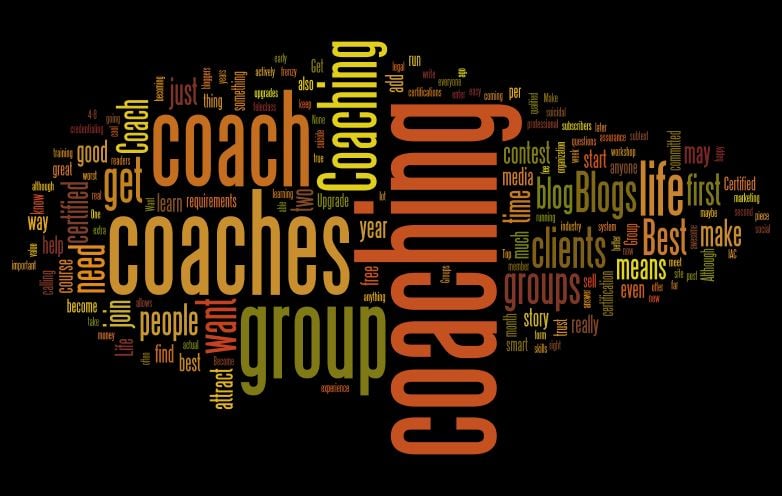
Coach Certification: The Great Debate
The ongoing debate about coach certification, coaching qualifications, and the profession of coaching was raised again today by Kerryn Griffiths, who runs ReciproCoach (an organization that has formalized the old laissez faire practice of buddy coaching, as a method of gaining practice for coaches) in an article called, "Where is coaching regulation headed?" Her article, which is only available to members of ReciproCoach, offers the rather alarming proposal that currently certified coaches might not be allowed to coach, anymore. While I disagree that this is a legitimate worry, I share some of the questions raised by Kerryn, as well as by the authors of a research paper liberally quoted by her: "From Competencies to Capabilities in the Assessment and Accreditation of Coaches (Bachkirova and Smith, 2015).
The process of certifying coaches based on competencies dates back about 20 years and it has been challenged many times. Does it really measure quality coaching? Do certified coaches really coach any more effectively than those who aren't certified? Which certification process is best? What does the research say?
I've been grading coaching sessions using coaching models invented by me, or by Thomas Leonard, or by the ICF, or IAC for over twelve years. What I can tell you is that none of the models I've used is perfect. They all miss possible approaches to coaching, because coaching is a process created in the moment by coaches and their clients and coaching models are all based on past experience.
Also, the coaching models currently in use by the ICF and IAC are not based on research, mainly because they were created before much research had been done on coaching. However, some recent research supports the skills the IAC and ICF advocate. For instance, asking is indeed usually more useful than telling and asking, "how?" tends to be more useful than asking, "why?".
My main complaints with both ICF and IAC certification models is that they really are both styles of coaching; they do not represent all good coaching. If you sent me two recordings of coaching sessions, one that passed ICF certification and the other that passed the IAC, I'm pretty certain I could tell you which was which. (Come to think of it, please don't send me any coach recordings. I'm busy enough, thanks.)
Also, competency-based coaching (the IAC calls their IP, "masteries", but the certification is still competency-based) has a way of limiting options and it encourages a tendency toward perfectionism in both coaches and certifiers. Perfectionism is fear-based (fear of being found flawed) and leads to constriction, limitation and less innovation; hardly good qualities for coaching.
In my opinion, there are at least a thousand styles of coaching that could be effective with the right clients in the right circumstances and most haven't been invented, yet.
A few years ago, I started telling my students who sat for certification, "Surprise me. I'd love to learn something new from you." And a few of them have, indeed, opened my eyes to new possibilities. Most coach certifications aren't like that.
But research has its limitations, too. Findings are sometimes only valid within a very narrow set of conditions and sometimes researchers miss or confuse what's really going on. In the end, all we ever have is our best guess. That doesn't mean we shouldn't investigate, only that we need to hold our findings lightly.
So is it worthwhile getting certified? I think it is. For one thing, most coaches want to be certified for some great reasons. Plus, if you can shoe-horn yourself into one of these coaching styles, you probably have many coaching tools in your tool belt and you know how to use them. Don't worry if every session you do wouldn't pass. Do remember that these coaching styles represent less than 1% of what may be effective. A few years ago, I suggested Tony Robbins couldn't pass ICF or IAC certification. What's the difference? Here's a brief comparison of ICF and IAC certifications.
New certifications and certifying organizations may come along. They might be better. Bachkirova and Smith offer an interesting model based on capabilities. I'll need to hear it in action before I jump on board. Presumably, they will research it, first.
My personal opinion is that most certifications focus too much on the coach and not enough on the client, where the evidence of success can be observed. Does the client open up to more possibilities, have insights and increased clarity that lead to enthusiasm, growth and solutions, plus action plans, supportive infrastructures and next steps? If clients are revisited days or weeks after the coaching, will certifiers find that they followed through on plans made during coaching and their lives are indeed transformed? If so, who cares how the coach got them there? The ICF and IAC do look at these, but I'm suggesting they mostly look at client outcomes, rather than coaching behaviors. I'm guessing researchers will be looking at both.
When enough research has been done, maybe - this is a BIG maybe - coach certification will be perfected.
In the meantime, the ICF is the main game in town. The IAC offers an alternative, but needs to certify a lot more coaches to stay competitive. I've heard a suggestion that they let their licensees start certifying coaches for them and that may be a great solution. In any case, if coaching is ever regulated in your country, being certified by the ICF or IAC will likely grandfather you in.
Coaching schools, such as School of Coaching Mastery, often offer their own coach certifications.
Are you interested in getting coach certification?







